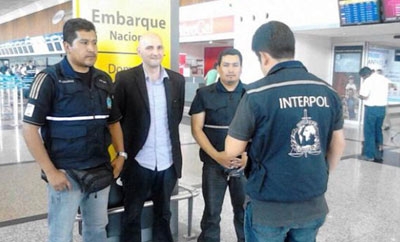Four out of five people detained by Costa Rica’s special police task force during the first nine months of 2013 were arrested for drug-related crimes, a sign of the growth of trafficking and the domestic drug market in the country.
Of the 4,500 people arrested between January and September this year by the police’s Operation Support Group (GAO) — which intervenes in urban areas with high levels of violent and organized crime — more than 3,500 were detained for drug offences, reported CB24.
According to Costa Rica’s Minister of Security Mario Zamora, those crimes were a combination of drug trafficking, possession and consumption, reported La Nacion. Zamora said the majority of arrests were made in the provinces of San Jose, Limon, Alajuela, Cartago and Heredia, which include seven of the country’s ten largest cities. 
La Nacion reported that during that time period, the GAO had seized tens of thousands of doses of marijuana, cocaine and cocaine derivatives.
InSight Crime Analysis
The fact such a massive percentage of people arrested by the GAO were in some way involved in drugs points to the growing use of Costa Rica as a transit point and the growing domestic market that has followed this uptick.
The combination of expansive forested coastlines and a lack of a military make Costa Rica vulnerable to drug traffickers, who have been increasingly pushed south from Mexico by the government and rivals in recent years. Traffickers from elsewhere in the region have also been detained in the country, as have large drug shipments. An internal government report earlier this year highlighted the use of the country as a departure point for drugs headed to 39 countries on four continents.
SEE ALSO: Costa Rica in the Crosshairs Special Series – Parts I, II and III
All of these conditions lend themselves to a growing domestic market, which has increased violence. While Costa Rica remains one of the least violent countries in the region, according to the Organization of American States’ (OAS) 2012 Report on Citizen Security in the Americas, the homicide rate almost doubled between 2000 and 2010, and the rate of cocaine consumption in 2010 — the most recent figures available — was more than double that of Brazil, the world’s second largest domestic cocaine market after the United States.
This link between drug trafficking and domestic consumption has long been identified, and the growing importance of Costa Rica as a drug transit point and concomitant rise in violence and consumption has previously been noted by the country’s President Laura Chinchilla.

